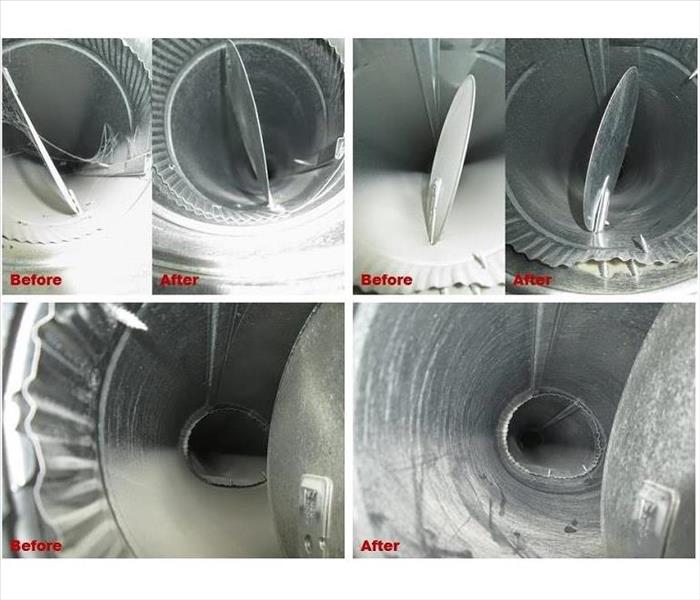AIR QUALITY WEEK IS MAY 1-5
5/1/2017 (Permalink)
Be Air Aware
When addressing air quality, inspecting the ductwork is your SERVPRO of Ravenswood Franchise Professional's first order of business. Dirty ducts can work to circulate odors and contaminants like mold and irritating dust throughout the building.
The SERVPRO® Difference
- Reduce potential for mold growth
- Remediate bacteria, fungi and mold
- Restore peak energy efficiency
- Eliminate offensive odors
- Free written inspections and estimates
How can the air inside our homes be so bad for us?
Over the years, buildings have been made more airtight to conserve energy. A variety of methods have been employed to keep the hot or cool air from escaping from our homes: installing storm windows and insulation; applying caulk and weather-stripping to seal cracks and other openings; and heating our homes with kerosene, wood, coal, and natural gas. Unfortunately, when we trap in hot or cool air, we also trap in pollutants and sometimes generate more.
Why is this an issue?
On average, people spend about 90 percent of their time indoors. Sixty-five percent of that is spent at home. To make matters worse, those who are most susceptible to indoor air pollution are the ones who are home the most: children, pregnant women, the elderly, and those with chronic illnesses. Children breathe in 50 percent more air per pound of body weight than adults do. EPA studies have found that pollutant levels inside can be two to five times higher than outdoors. After some activities, indoor air pollution levels can be 100 times higher than outdoors.
To find out more go here:
http://files.constantcontact.com/074ea2a5601/f35c263a-ce1b-46a6-af5f-b8aec774bb67.pdf
National Safety Council: http://www.nsc.org/pages/home.aspx




 24/7 Emergency Service
24/7 Emergency Service
